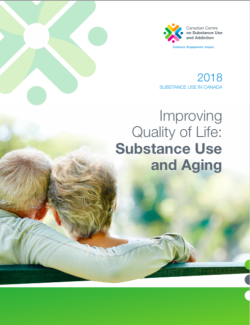The intersection of substance use with broader public health concerns.
Public Health
Characteristics of the disorder screening instruments for Alcohol use in young University of Argentina
Overview Alcohol use disorders are alarmingly high in the University population. Screening instruments is essential for the measurement of the epidemiological and clinical practice. The objective of this study is to compare the performance...
Light–Moderate Alcohol Consumption and Left Ventricular Function among Healthy, Middle-Aged Adults
Abstract Objectives: To investigate the association between alcohol consumption and left ventricular (LV) function in a population with low average alcohol intake. Design, setting and participants: A total of 1296 healthy participants, free...
#StatusofMind: Social Media and Young People's Mental Health and Wellbeing
KEY POINTS 91% of 16-24 year olds use the internet for social networking Social media has been described as more addictive than cigarettes and alcohol Rates of anxiety and depression in young people have risen 70% in the past 25 years...

Conferencia: "El papel de los cannabinoides en el dolor crónico"
El Instituto para la Atención de las Adicciones en la Ciudad de México (IAPA), extiende una cordial invitación a la conferencia "El papel de los cannabinoides en el dolor crónico", que será dictada por el Dr.

Potential Public Health Effects of Reducing Nicotine Levels in Cigarettes in the United States
Conclusions of this study indicate that enacting a regulation to lower the nicotine content of cigarettes to minimally addictive levels in the United States would lead to a substantial reduction in tobacco-related mortality, despite...
Guidance on the Implementation of Minimum Pricing for Alcohol
With legislation brought in on 1 May 2018 the Scottish Government has produced a resource offering Guidance on the Implementation of Minimum Pricing for Alcohol for sellers of alcohol and alcohol enforcement authorities in Scotland. The...

Scotland Becomes the First Country to Enforce Minimum Pricing on Alcohol
Scotland has become the first country in the world to enforce a minimum price per unit of alcohol. As of 1 May 2018 all alcohol must cost no less than 0.5GPD or 50 pence. The move is the result of a long process of research and...

Improving Quality of Life: Substance Use and Ageing
The Canadian Centre on Substance Use and Addiction (CCSA) has released a resource focusing on substance use in ageing populations. The document covers the consequences of substance use in older adults, health conditions which might occur...

Single Episode of Alcohol Use Resulting in Injury: A Cross-Sectional Study in 21 Countries
Objective To examine the empirical basis for including the diagnostic category of “a single episode of harmful substance use” in the 11th revision of the International statistical classification of diseases and related health problems (ICD...
Electronic Cigarettes and Future Marijuana Use: A Longitudinal Study
Abstract Background: Cigarettes have been strongly associated with subsequent marijuana use among adolescents, but electronic cigarettes (e-cigarettes) are now rapidly replacing traditional cigarettes among youth. This study examines...